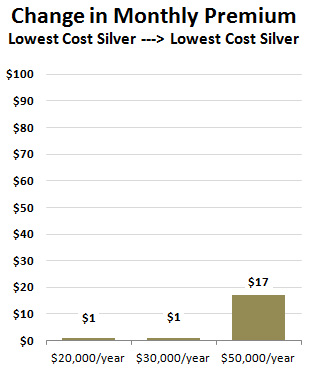Abby Goodnough writes today about switching health care coverage each year during Obamacare’s year-end open enrollment period:
The Obama administration is encouraging switching as a way to avoid steep increases in premiums — and to promote competition among insurers, as the law intends. Next year will be no different: The price of plans will rise in most states, and the administration says that 86 percent of people who currently have coverage through the federal exchange can find a better deal by switching.
“This may be just one of those environments where there’s a new normal,” said Sabrina Corlette, a professor at the Health Policy Institute of Georgetown University.
For many consumers, the volatility in the markets has been a source of anxiety and disruption. To have any choice at all is a welcome development, many say. But switching plans is also becoming an unwelcome ritual, akin to filing taxes, that is time-consuming and can entail searching for new doctors and hospitals each year.
This is unquestionably a downside to encouraging competition in the health insurance marketplace. As carriers jostle for position, the lowest-price coverage is going to change from year to year—and if you’re a price-sensitive shopper, that  means your coverage is going to change from year to year too.
means your coverage is going to change from year to year too.
I suspect this problem will settle down after a couple more years, as insurance companies get more experience with the Obamacare pool and get better at pricing their policies. In the meantime, though, it really does pay to shop around. A new Kaiser study of 2016 rate increases provides some concrete numbers. If you bought the cheapest silver plan in 2015 and then you stick with it in 2016, your premium may go up quite a bit. But if you shop around for the plan that has the lowest price in 2016, your premium will barely change at all. The chart on the right tells the story. For low-income buyers, shopping around means virtually no premium increase at all. For middle-income buyers, it means a larger but still pretty modest increase.
Moral of the story: If price is a major issue for you, shop around! It’s a pain in the ass, but it pays off.















